 New York, USA, 19 December 2017: The United Nations General Assembly has declared 23 September as International Day of Sign Languages. The resolution (A/C.3/72/L.36/Rev.1 – International Sign version here) was initially adopted by consensus during the 48th meeting of the Third Committee of the United Nations General Assembly on Thursday, 16 November 2017 and officially adopted today at the 72nd United Nations General Assembly.
New York, USA, 19 December 2017: The United Nations General Assembly has declared 23 September as International Day of Sign Languages. The resolution (A/C.3/72/L.36/Rev.1 – International Sign version here) was initially adopted by consensus during the 48th meeting of the Third Committee of the United Nations General Assembly on Thursday, 16 November 2017 and officially adopted today at the 72nd United Nations General Assembly.
The resolution was proposed, or sponsored, through the Permanent Mission of Antigua and Barbuda to the United Nations, following an original request by the World Federation of the Deaf (WFD). The WFD worked with its country members to garner support from their respective Permanent Missions to the United Nations, who have the power at the United Nations General Assembly to vote for adoption of the resolution as co-sponsors. The resolution was co-sponsored by 97 United Nations Member States and adopted by consensus.
Ambassador Walton Webson of the Permanent Mission of Antigua and Barbuda to the United Nations: ´This resolution is an important milestone in our international promise “to leave no one behind”. The acclimation of 23 September as the international day of sign languages is a significant step in the universalization of all communities to recognize the objectives set out in article 21 of the UNCRPD to meet our universal goal of inclusion. The Government of Antigua and Barbuda is pleased to be part of this international day that will focus the world’s attention on the principles of the UNCRPD in calling for equality, especially in terms of accessibility, that allows an individual freedom of choice, dignity and independence of self without discrimination.´
The choice of 23 September commemorates the date that the WFD was established in 1951. This day marks the birth of an advocacy organisation, which has as one of its main goals, the preservation of sign languages and deaf culture as pre-requisites to the realisation of the human rights of deaf people.
The first International Day of Sign Languages will be celebrated on 23 September 2018 as part of the International Week of the Deaf.
World Federation of the Deaf President Colin Allen: ‘This resolution recognises the importance of sign language and services in sign language being available to deaf people as early in life as possible. It also emphasises the principle of “nothing about us without us” in terms of working with Deaf Communities. With effect from year 2018, the WFD is overjoyed at the prospect of observing and celebrating this day annually.’
The International Week of the Deaf was first celebrated in September 1958 and has since evolved into a global movement of deaf unity and concerted advocacy to raise awareness of the issues deaf people face in their everyday lives.
Source: Text & Image: wfdeaf.org
 In today’s gospel (Jn.1:6-8,19-28), we meet John the Baptist with the people sent to question him on his true identity.
In today’s gospel (Jn.1:6-8,19-28), we meet John the Baptist with the people sent to question him on his true identity. 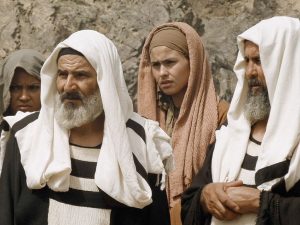
 Nowadays, technology has changed things, of course.
Nowadays, technology has changed things, of course.
 The United Nations’ (UN) Universal Children’s Day, which was established in 1954, is celebrated on November 20 each year to promote international togetherness and awareness among children worldwide. UNICEF, the United Nations Children’s Fund, promotes and coordinates this special day, which also works towards improving children’s welfare.
The United Nations’ (UN) Universal Children’s Day, which was established in 1954, is celebrated on November 20 each year to promote international togetherness and awareness among children worldwide. UNICEF, the United Nations Children’s Fund, promotes and coordinates this special day, which also works towards improving children’s welfare.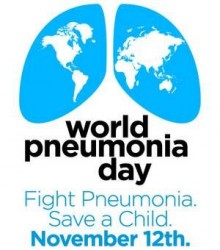 World Pneumonia Day is annually held on November 12 to raise awareness of pneumonia, promote prevention and treatment, and generate action to fight the illness.
World Pneumonia Day is annually held on November 12 to raise awareness of pneumonia, promote prevention and treatment, and generate action to fight the illness.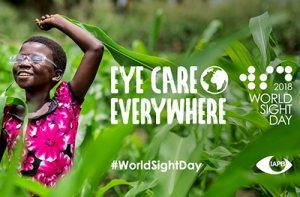 World Sight Day (WSD) is an annual day of awareness held on the second Thursday of October, to focus global attention on blindness and vision impairment.
World Sight Day (WSD) is an annual day of awareness held on the second Thursday of October, to focus global attention on blindness and vision impairment.  New York, USA, 19 December 2017: The United Nations General Assembly has declared 23 September as International Day of Sign Languages. The resolution (
New York, USA, 19 December 2017: The United Nations General Assembly has declared 23 September as International Day of Sign Languages. The resolution (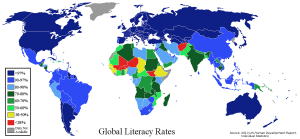

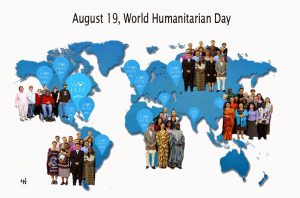 Every year, thousands of men and women the world over put their lives in danger working in Humanitarian causes all over the world. Working in the most poverty and illness stricken third world countries the world over, often in areas of great social violence, these dedicated heroes put their lives on the line, and sometimes lose them in the pursuit of their goals. World Humanitarian Day is when we remember these heroes and their sacrifices.
Every year, thousands of men and women the world over put their lives in danger working in Humanitarian causes all over the world. Working in the most poverty and illness stricken third world countries the world over, often in areas of great social violence, these dedicated heroes put their lives on the line, and sometimes lose them in the pursuit of their goals. World Humanitarian Day is when we remember these heroes and their sacrifices.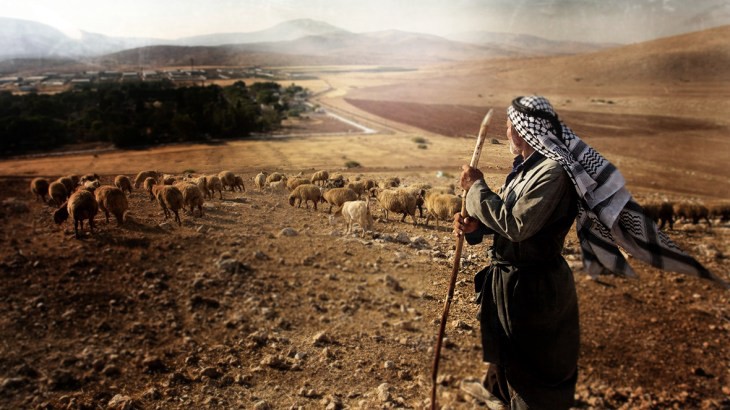
 I wonder, yes, I do… how many people are aware that God himself offers us precisely that:
I wonder, yes, I do… how many people are aware that God himself offers us precisely that: